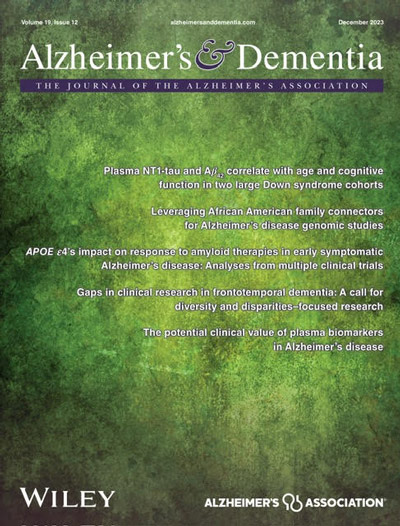Eating and swallowing care disparities in persons with dementia: A conceptual framework
Abstract
INTRODUCTION
Eating and swallowing difficulties are prevalent and distressing among persons living with dementia (PLWD). These challenges may be especially burdensome for PLWD in lower-resourced settings, where environmental factors such as social support, health-care infrastructure, and food access are critical for meeting quality standards of eating and swallowing care. However, clinical practices and research methods have not sufficiently focused on the lived environment to promote high-quality, socially and culturally aligned management approaches.
METHODS
To address this gap, we developed a conceptual framework informed by the literature, grounded in ecological systems and fundamental cause theories, and refined through iterative discussion.
RESULTS
Our framework highlights individual-, system-, and community-level factors and resources influencing person-centered eating and swallowing care for PLWD. It identifies areas at risk for inequitable care along the swallowing management continuum.
DISCUSSION
We propose future research areas to help health-care providers reconcile the demands of eating and swallowing care with the lived realities of PLWD.
Highlights
- There are eating/swallowing care disparities among persons living with dementia.
- We introduce a conceptual framework applying social and structural determinants of health to eating/swallowing care.
- We also recommend areas to address disparities and improve eating/swallowing care.


 求助内容:
求助内容: 应助结果提醒方式:
应助结果提醒方式:


